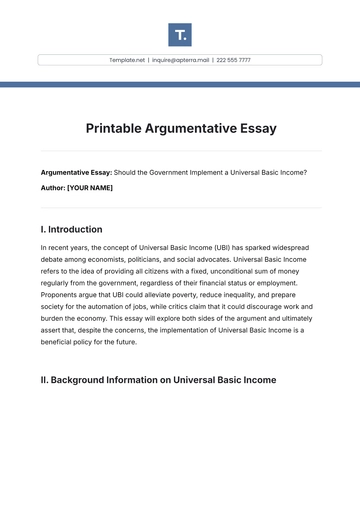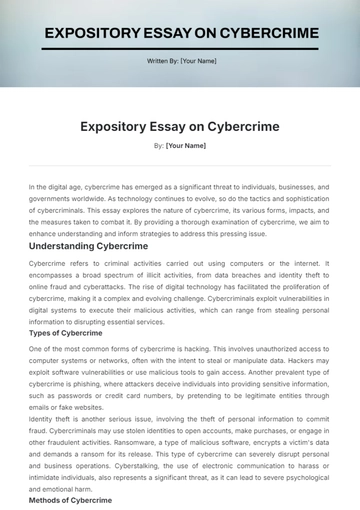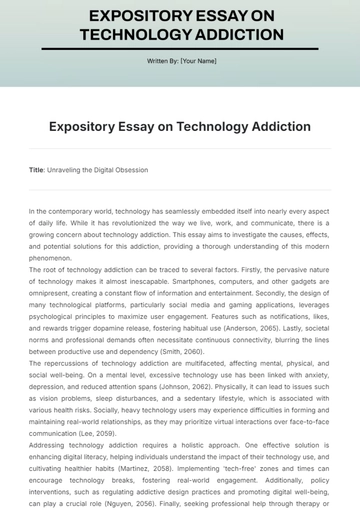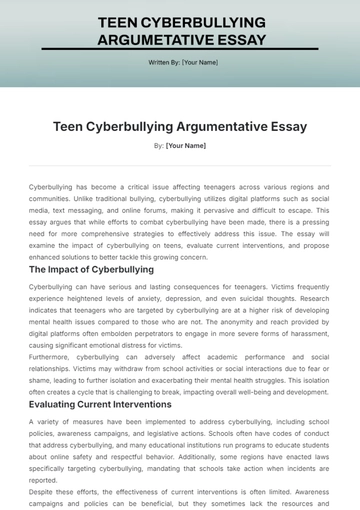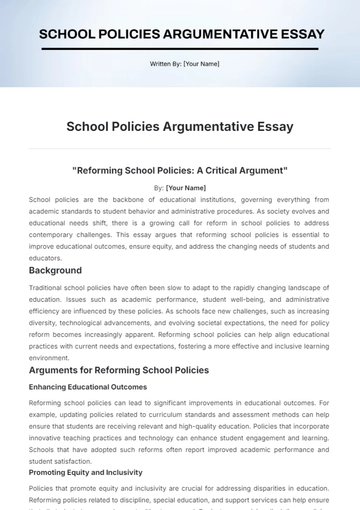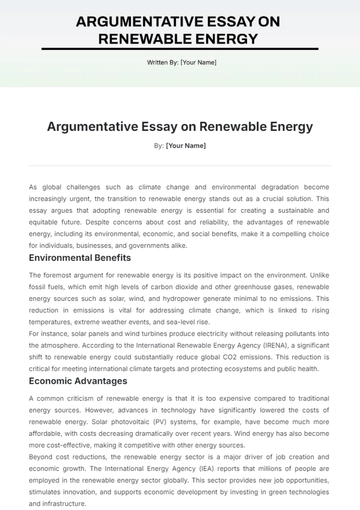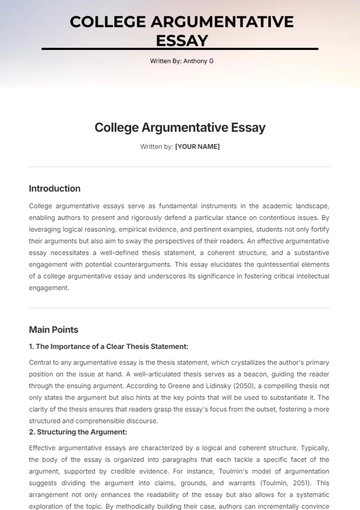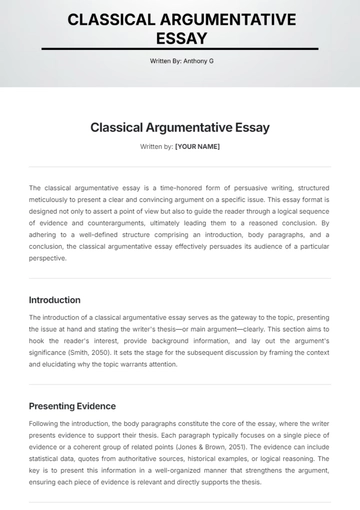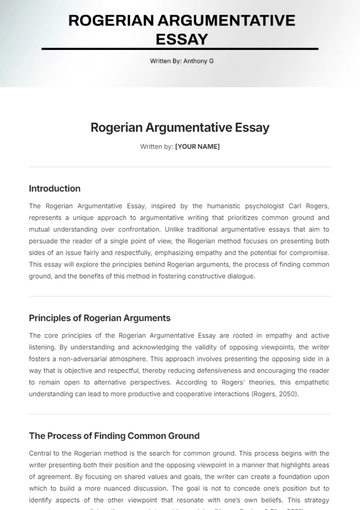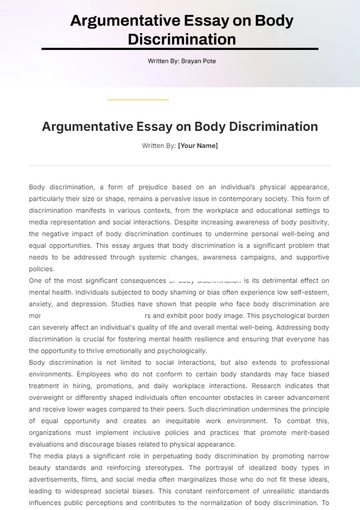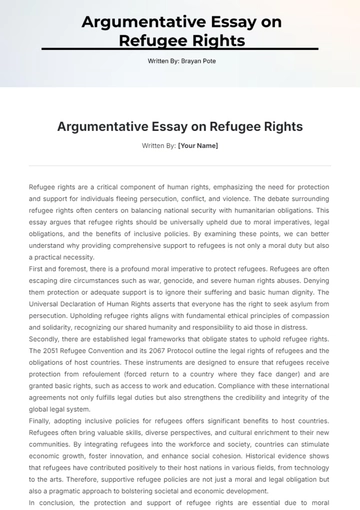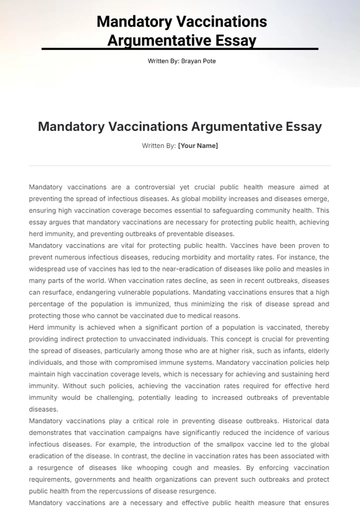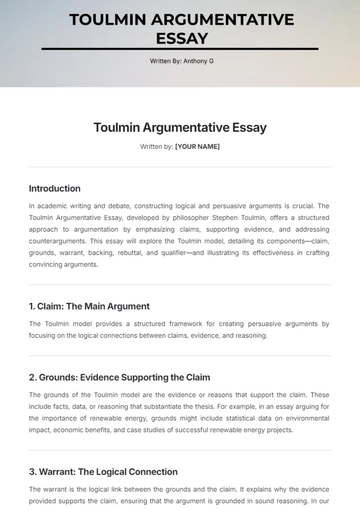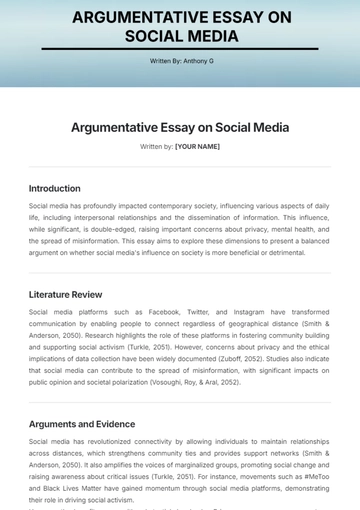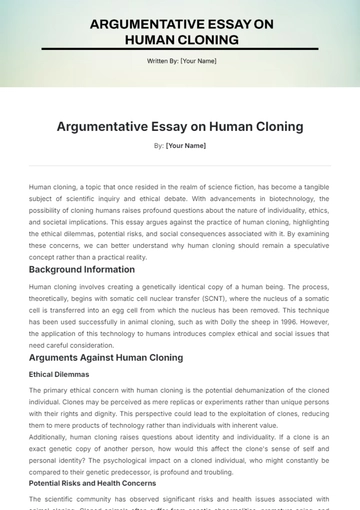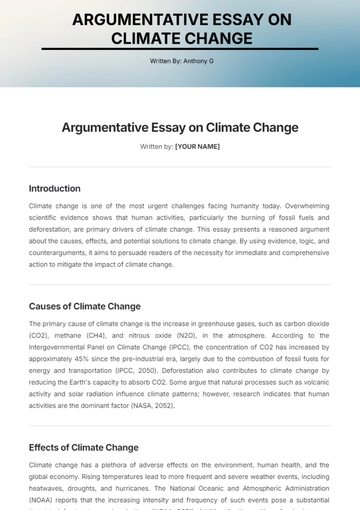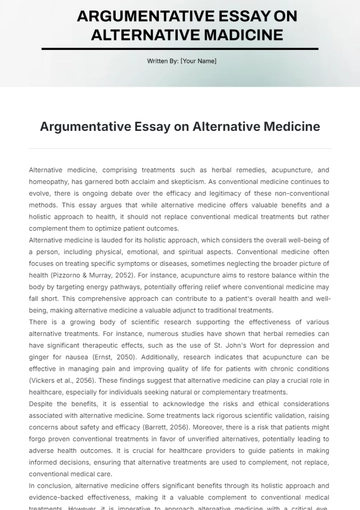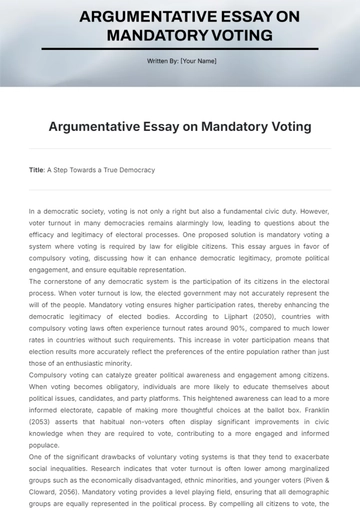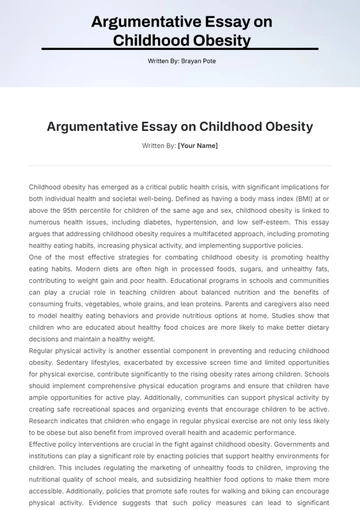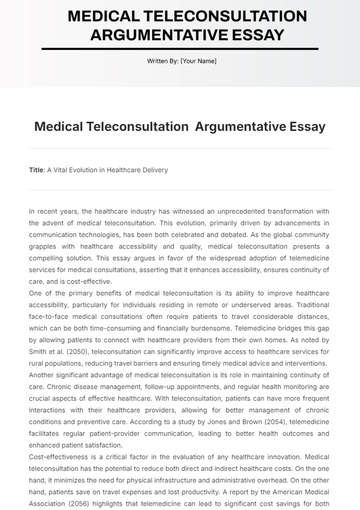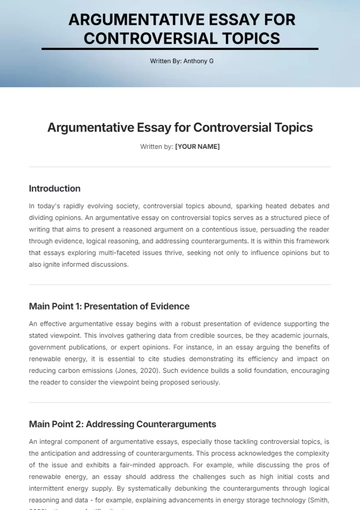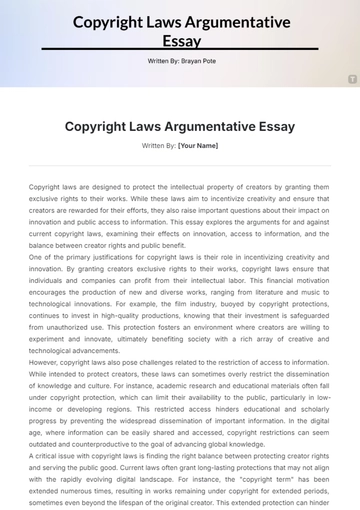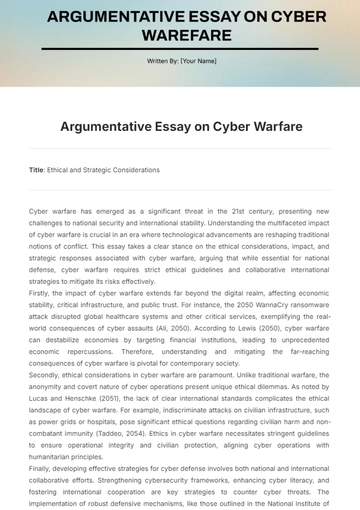Free Argumentative Essay Thesis
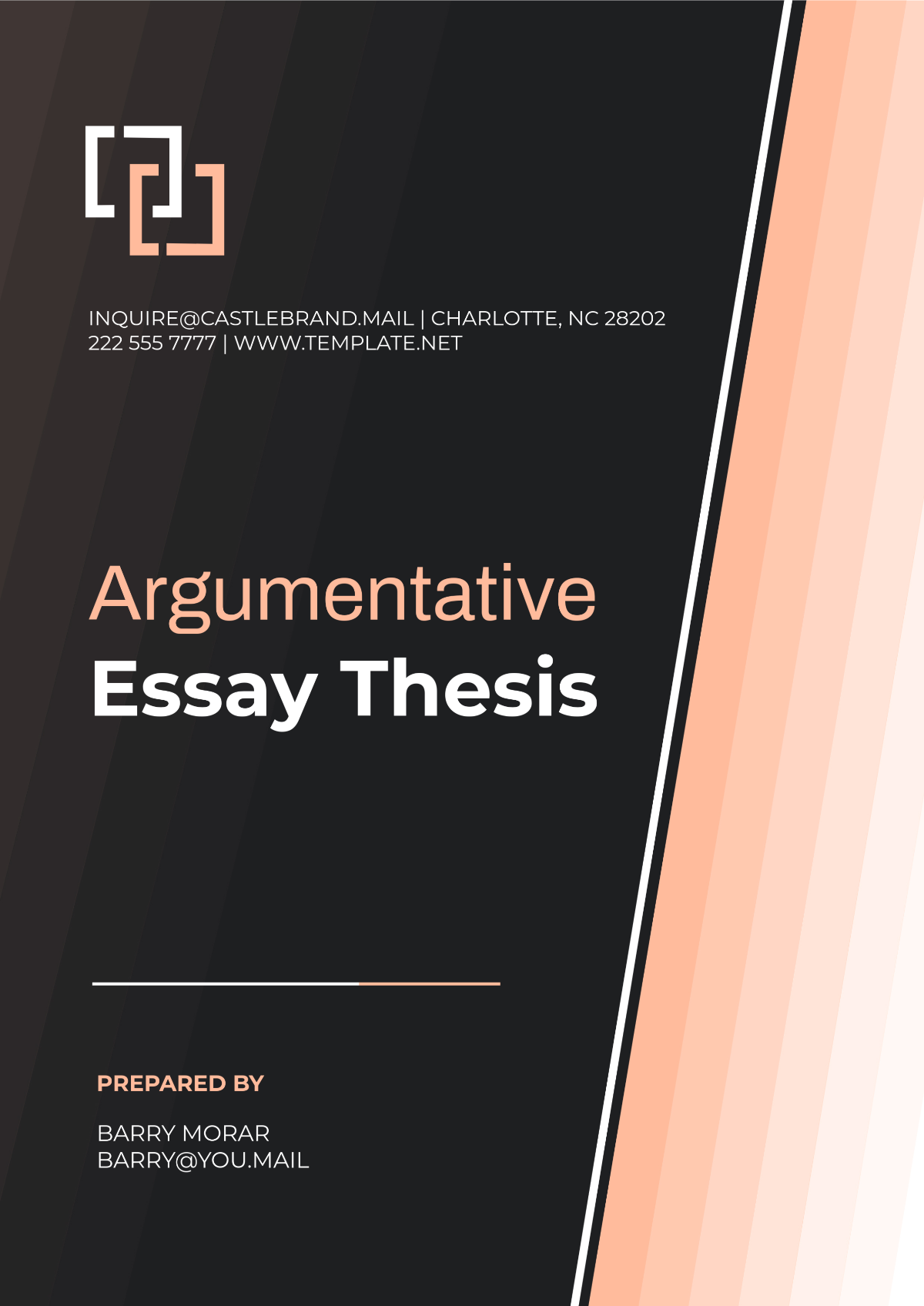
Prepared by: [YOUR NAME]
Contact: [YOUR EMAIL]
Introduction
This essay explores the importance of sustainable energy solutions in combating climate change. By addressing key challenges and opportunities, this argument advocates for a global shift to renewable energy systems by 2050 to secure a sustainable future for humanity.
I. The Need for Renewable Energy Adoption by 2050
Fossil fuel dependence is unsustainable due to finite resources and environmental degradation. Transitioning to renewable energy by 2050 is necessary to curb greenhouse gas emissions and meet global energy demands.
Thesis Statement: Governments, businesses, and individuals must prioritize renewable energy adoption to combat climate change effectively and ensure energy security for future generations.
II. Economic Benefits of Renewable Energy
Investing in renewable energy stimulates economic growth through job creation and innovation. According to projections, transitioning to green energy could generate 25 million jobs worldwide by 2055.
Energy Source | Job Growth Rate | Estimated Jobs by 2055 | Cost per Unit ($) | Adoption Rate (%) |
|---|---|---|---|---|
Solar Power | 12% | 10 Million | 0.05 | 45 |
Wind Energy | 10% | 8 Million | 0.07 | 30 |
Geothermal | 8% | 5 Million | 0.09 | 15 |
III. Environmental Impact and Climate Goals
Renewable energy reduces greenhouse gas emissions and promotes a cleaner planet. Achieving net-zero emissions by December 31, 2050, aligns with global climate agreements and preserves biodiversity.
IV. Overcoming Policy and Funding Barriers
Effective policies and funding mechanisms are essential for large-scale renewable energy deployment. Subsidies, tax incentives, and international collaboration can bridge financial gaps.
V. Technological Advancements Driving Efficiency
Innovations in renewable energy technology, such as advanced solar panels and battery storage systems, enhance efficiency and accessibility. By November 1, 2052, anticipated breakthroughs will reduce energy production costs by 50%.
VI. Social and Cultural Benefits of Renewable Energy
Renewable energy promotes energy equity, particularly in underserved communities. Providing clean, affordable energy to marginalized groups fosters societal well-being and stability.
VII. The Role of Public Awareness and Education
Public awareness campaigns are vital for encouraging community participation in renewable energy initiatives. By September 15, 2055, global education programs aim to reach 2 billion individuals with sustainability training.
Conclusion
Transitioning to renewable energy by 2050 is a critical step toward addressing the climate crisis and securing economic, environmental, and social stability. By embracing this transformative shift, humanity can ensure a thriving, sustainable future.
- 100% Customizable, free editor
- Access 1 Million+ Templates, photo’s & graphics
- Download or share as a template
- Click and replace photos, graphics, text, backgrounds
- Resize, crop, AI write & more
- Access advanced editor
This Argumentative Essay Thesis Template from Template.net is fully customizable and editable, allowing you to create the perfect thesis for your essay. With the AI Editor Tool, you can effortlessly personalize each section to meet your specific requirements. Save time and improve the quality of your work with this easy-to-use and adaptable template.

